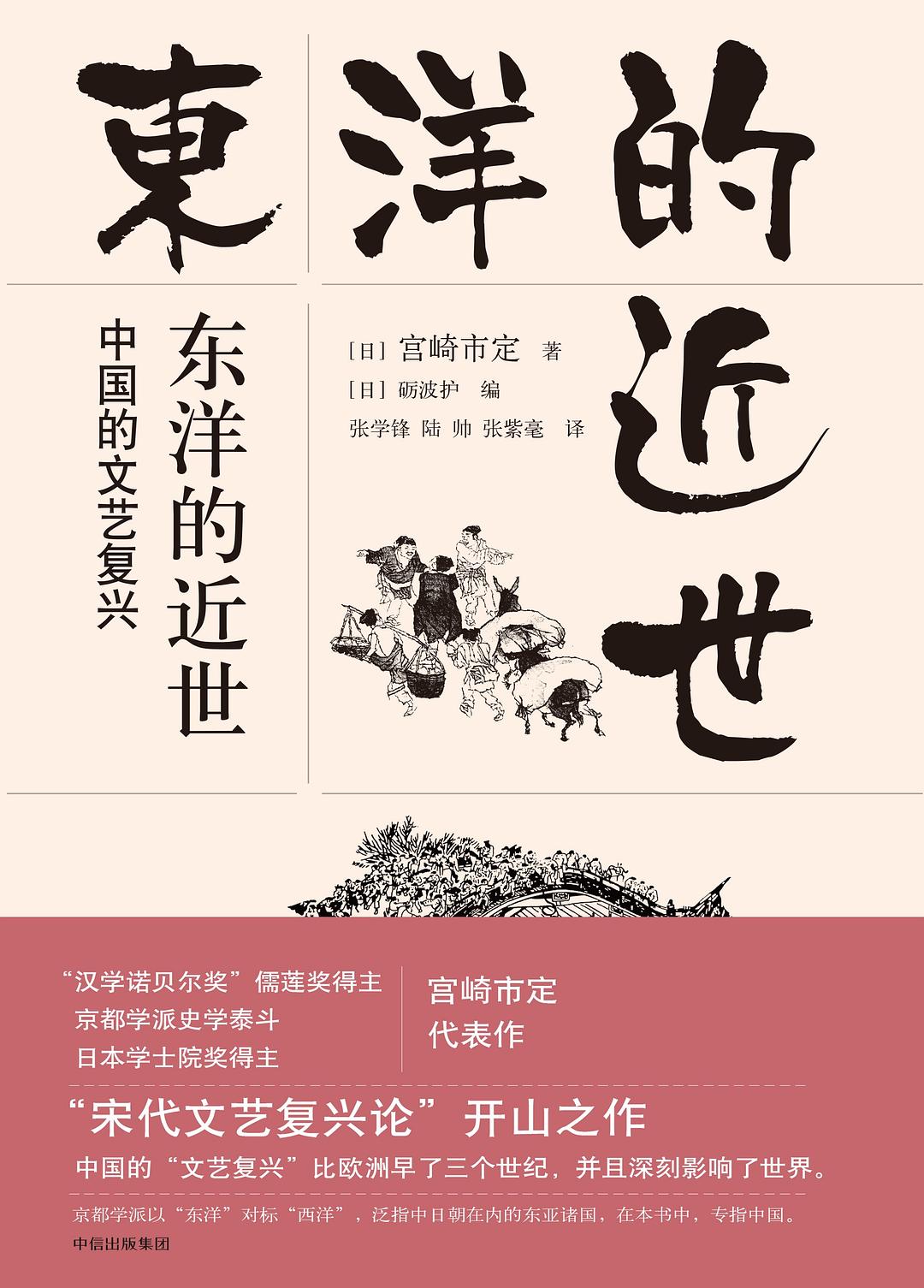WULOLIFE
《东洋的近世:中国的文艺复兴》作者: [日]宫崎市定著 / [日]砺波护编译者: 张学锋 /陆帅 / 张紫毫
《东洋的近世:中国的文艺复兴》作者: [日]宫崎市定著 / [日]砺波护编译者: 张学锋 /陆帅 / 张紫毫
Couldn't load pickup availability
Description
内容简介 · · · · · ·
“流经日本桥下的水,与泰晤士河相通;江户汉子吸进去的空气,有巴黎姑娘呼出来的气息。”本书是日本著名历史学家、京用世界史的眼光理解东洋史,全面揭示了从宋代到清代中国近世社会的特征。
宫崎市定发掘中国宋代与欧洲近世史之间许多平行的史事,认为中国北宋开始出现文艺复兴现象,而这一过程比西洋早了三个世纪。相当全面地列举了从宋代到清代的中国近世社会的特征:大规模的都市、发达的交通、繁荣的交换经济、建立在契约上的地主-佃户关系、中央集权的官僚国家体制、科举制度产生的文官体系、以佣兵制为基础的庞大中央禁军。所有这些特征,归结起来,是高度发达的交换经济与中央集权的国家特征相结合的体现。而在这样的体制下,新生的宋代平民文化中出现了民族主义搏动的先兆。
编辑推荐:
★“宋代文艺复兴论”开山之作。中国的“文艺复
★“汉学诺贝尔奖”儒莲奖得主、史学泰斗宫崎市定学术代表作,日本东洋史学京都学派经典的学术标志和研究中国古代史的坐标系。
—佃户关系、影响了欧美近代人事制度的文官体系、庞大的雇佣军。全面解读宋代的近代性!
名人推荐:
作为史学泰斗内藤湖南在京都大学的学生和继承人,宫崎市定教授在《东洋的近世》中发展恩师关于中国历史分期的理论,并从经济和社会文化入手,完善了理论的基础,将其推广到更广阔的世界历史中去验证和讨论。
——[加]蒲立本(不列颠哥伦比亚大学教授)
《东洋的近世》在其刊行之初,是充满争论的读物。然而今天,这部书无疑可以作为一部值得信赖的历史概说书来阅读,同时可以充满信心地加以引用。
——[日]砺波护(大学教授)
宫崎市定继承了内藤湖南的宋代近世说,在东亚与西亚、欧洲等地相互交流的视野下,作为世界史的重要组成部分,从史料中发掘出了宋代作为“近世”的各种表现,并确定其历史地位。
——[日]增渊夫(一桥大学教授)
宫崎在《东洋的近世》一书中补充了内藤说在经济方面论据之不足,相当全面地列举了从宋代到清代的中国近世社会的特征。他在新生的宋代平民文化中发现了中国近世国民主义搏动的Note:
——张广达(台北“中研院”院士)
宫崎市定通过《东洋的近世》等书完善了内藤湖南的中国史分期理论,从此,中世贵族制度、近世说及其唐宋变革说成为日本东洋史学京都学派最为经典的学术标志和研究整个中国古代史的坐标系。
——刘正(中国人民大学教授)
宫崎市定《东洋的近世》进一步发展了内藤湖南的“唐宋变革论”,他不仅继承了内藤关于唐宋变革是贵族政治向君主独裁政治转变的观点,而且十分突出地强调宋代作为近Note:
——张国刚(清华大学教授)
内藤湖南曾将宋代比拟为西洋的文艺复兴时代,宫崎市定则对之作了全面系统的论证,认为“东洋(宋代)的文艺复兴比西洋的文艺复兴早三个世纪”,甚至前者还“启发和影响”了后者。可以说,宫崎市定不仅是其老师内藤唐宋变革说的继承者,更是师说的发展者、保卫者。他的贡献受到了整个学界的充分肯定,以至于西方学界或将内藤的唐宋变革说称之为内藤—宫崎说。
——牟发松(华东师范大学教授)
纵贯东西,站在世界史的立场上,用世界史的眼光来理解“东洋史”,同时是宫崎史学中最具特色的一点。
——张学锋(南京大学教授)
作者简介 · · · · · ·
宫崎市定(1901—1995),日本历史学家,京都学派史学集大成者,东洋史京都学派第二代领军人物。先后任京都大学教授,巴黎大学、哈佛大学、汉堡大学等校客座教授。曾荣获有“汉学诺贝尔奖”之称的儒莲奖、日本学士院奖和文化代表作有《九品官人法研究:科举前史》《科举》《东洋的近世》等。
日本东洋史专家,京都大学名誉教授,专门研究三国至隋唐时代的中国历史。代表作有《隋唐佛教国家》《唐代政治社会史研究》等。
目录 · · · · · ·
解说(砺波护)
译后记
